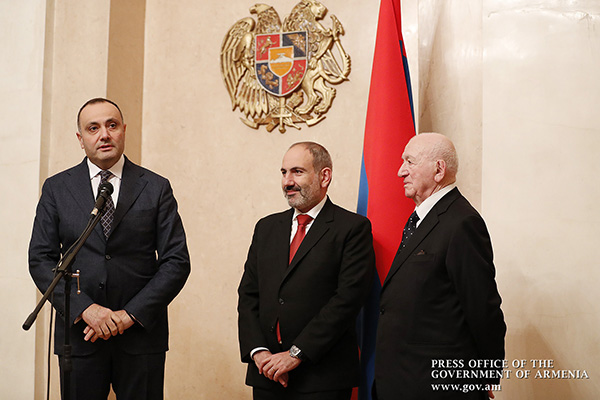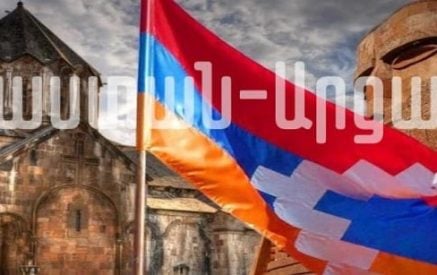by Haykaram Nahapetyan
Nikita or Mkrtich Simonyan played soccer at a time when the sport was still relatively new in the Soviet Union. His father, Poghos Simonyan, was a survivor of the Armenian Genocide.
Born in 1926 in the town of Armavir in southern Russia — named after the historic Armenian capital — Simonyan began playing soccer as a child and soon joined a local junior team. At one match, his father noticed the crowd loudly chanting “Nikita” and asked who that was. “It’s your son, Mkrtich,” he was told. His Armenian name had been adapted to the Russian “Nikita,” a name he carried for the rest of his career.
In 1945, Simonyan’s local squad earned two consecutive victories against one of Moscow’s main teams, Wings of the Soviets, and Simonyan scored in both matches. These wins changed his life. One of the two coaches of the Wings, Abraham Dangulov, was a Russian Armenian and took notice. In 1946, Simonian was invited to Moscow. He attended school there and lived with the Wings’ second coach, Vladimir Gorokhov. When Dangulov and Gorokhov later moved to the legendary Spartak [Spartacus] club, Simonian followed. In his first year with Spartak, he scored an impressive 26 goals.
In 1951, Simonyan received an unexpected summons from Vasiliy Stalin, the son of Soviet leader Joseph Stalin. Vasiliy, a two-star aviation general and supervisor of the Soviet Air Force soccer team, sent a special military plane to bring Simonyan from his vacation in the south. In the meeting, he demanded that Simonyan leave Spartak and join VVS, the Red Aviation team. After a moment of thought, Simonian refused — an extraordinary act of courage at the time.
Simonyan went on to score 160 goals for Spartak, setting a record that no player has surpassed. In 1954, he made his debut for the USSR national team, scoring twice against Sweden. He retired as a player in 1959 and immediately transitioned into coaching at Spartak.
Meanwhile, Abraham Dangulov had moved to Yerevan to coach the Armenian national squad. By the late 1960s and early 1970s, Ararat Yerevan had become one of the strongest teams in the Soviet Union, yet a championship title still eluded them. Even though Ararat placed second in 1971 and fourth in 1972, the ultimate victory remained out of reach. It was then that Soviet Armenia’s leadership invited Simonyan to take charge.
Simonyan became Ararat’s head coach in 1973 — a year that became the greatest in the club’s history. In the final match in Moscow, Ararat dramatically captured victory from Ukraine’s Dynamo. The Ukrainians led after scoring a penalty in the second half, but in the 89th minute Levon Ishtoyan equalized and later scored again in extra time. Ararat won both the Soviet Top League championship and the Soviet Cup that year—an extraordinary double. They won the Cup again in 1975, around that time Simonian eventually returned to manage Spartak. He briefly coached Ararat once more in the 1980s.
Last month, Simonyan celebrated his 99th birthday. On that occasion, Russian President Vladimir Putin awarded him the title Hero of Labor.
Simonyan passed away on November 23.
Back in 2011, Armenian President Serzh Sargsyan awarded Simonyan the Medal of Honor. At the ceremony he said:
“I am honored to receive this esteemed award. You know, I’m one hundred percent Armenian. My parents, Armenians from Artvin, once escaped the Genocide. My father was a great patriot. For me, it was a great honor to lead the national team Ararat in 1973. What these guys achieved — the championship and the cup — was a celebration for me as a coach.”



























































